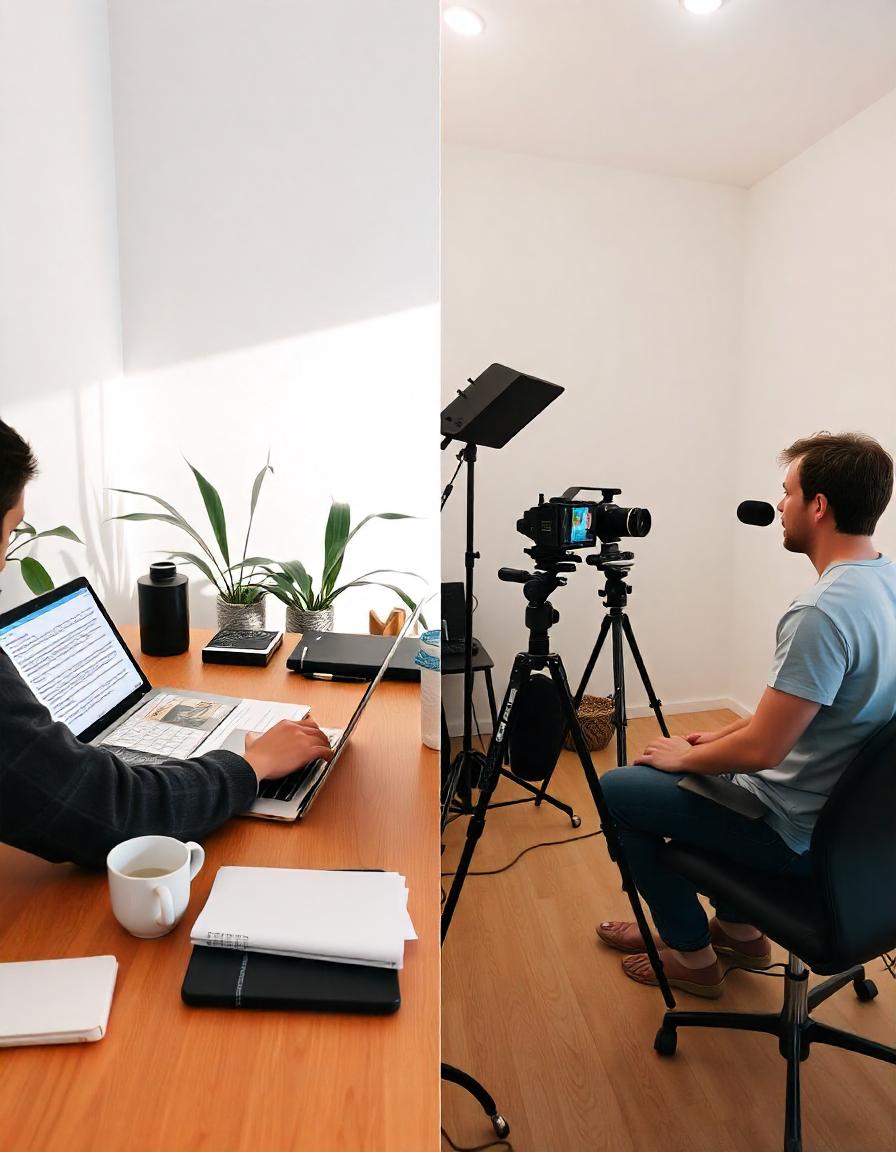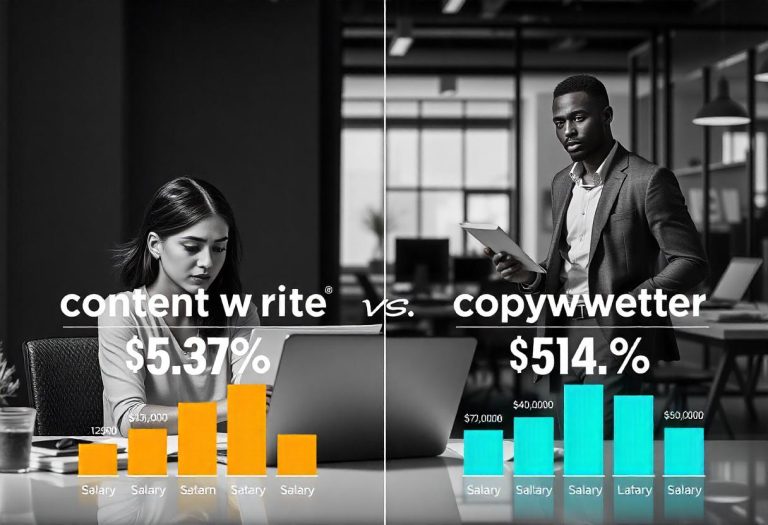Blogging vs YouTube: Which Is Best For You?
In today’s digital world, creating content online is one of the most effective ways to build a personal brand, share knowledge, or even make money. Two of the most popular methods for doing so are blogging and YouTube. Both offer incredible opportunities to reach a global audience, but which one is best for you? In this article, we’ll compare blogging vs. YouTube in terms of income potential, ease of entry, content creation, audience engagement, and more.
Find Out How To Make Money As A Full-Time Writer/Blogger Guide
1. Content Creation
- Blogging: Blogging requires you to write articles, create written content, and focus on SEO (Search Engine Optimization) to drive organic traffic from search engines like Google. You can create posts on a wide variety of topics, such as fashion, technology, travel, or personal development. A blog allows you to showcase your expertise in written form, using images, infographics, and embedded media to support your posts.
- YouTube: YouTube, on the other hand, requires you to create video content. You’ll need to plan, record, and edit videos to upload to your channel. Video content has the advantage of being more engaging because it combines visuals, sound, and narration. YouTube also allows for a more personal connection with your audience through visual storytelling and body language.
Winner: If you enjoy writing and crafting detailed, informative posts, blogging is the way to go. However, if you’re comfortable with video production and enjoy speaking or demonstrating things visually, YouTube might be a better fit.
Find Out How To Make Money As A Full-Time Writer/Blogger Guide
2. Monetization Potential
- Blogging: Bloggers can make money in several ways:
- Ad Revenue: By placing ads on their website (via platforms like Google AdSense).
- Affiliate Marketing: Earning commissions by promoting products or services in blog posts.
- Sponsored Content: Partnering with brands to write paid posts.
- Selling Products/Services: Many bloggers sell their own eBooks, courses, or merchandise.
- With blogging, income can be passive once the content ranks well on search engines. However, it often takes a while to build up enough content and traffic to start seeing significant earnings.
- YouTube: YouTube creators can monetize their channels through:
- Ad Revenue: YouTube places ads on your videos, and you earn money based on views and ad interactions.
- Sponsored Content: Similar to blogging, creators can partner with brands to feature products in their videos.
- Super Chats and Channel Memberships: For live streams and special content, creators can earn money directly from their audience.
- Affiliate Marketing: You can promote products and services within your videos or in the video description.
- YouTube offers the potential for quicker earnings, especially if you create viral content. However, reaching monetization (by joining the YouTube Partner Program) requires at least 1,000 subscribers and 4,000 watch hours in the past 12 months.
Find Out How To Make Money As A Full-Time Writer/Blogger Guide
Winner: If you prefer passive income and are patient enough to wait for your blog to grow, blogging is great. But if you want to potentially monetize more quickly and enjoy creating engaging visual content, YouTube might be the better option.
3. Audience Engagement
- Blogging: Blogs allow for engagement through comments, email newsletters, and social media. However, text-based engagement can feel less personal than video engagement, and many people find themselves clicking away from articles before finishing them.
- YouTube: YouTube provides more direct interaction. Viewers can like, comment, and share your videos, and you can engage with them in real time through live streams. The visual and auditory nature of video makes it easier to build a personal connection with your audience.
Winner: YouTube tends to have better engagement because of the visual and interactive nature of the platform, but blogging can still be effective for engaging an audience if you actively respond to comments and build an email list.
4. Ease of Entry and Setup
- Blogging: Starting a blog is relatively simple and affordable. All you need is a hosting service, a domain name, and a blogging platform (such as WordPress). You don’t need advanced technical skills, though learning SEO, web design, and content marketing will help your blog grow.
- YouTube: Setting up a YouTube channel is free and quick, but creating high-quality videos often requires investment in equipment like cameras, microphones, and lighting. Additionally, video editing can be time-consuming and may require specialized software skills.
Find Out How To Make Money As A Full-Time Writer/Blogger Guide
Winner: Blogging is easier to start because it has lower upfront costs and requires less specialized knowledge. However, if you already have video production skills or are willing to invest in equipment, YouTube can be a relatively easy option too.
5. Time Commitment
- Blogging: Writing, editing, and posting blog content can take a significant amount of time, especially when aiming to produce high-quality articles. Additionally, building SEO authority and traffic can take months or even years. But once your blog is established, it requires less ongoing time and effort compared to video production.
- YouTube: Creating videos often takes more time compared to writing blog posts. Filming, editing, and optimizing videos for YouTube can be a time-consuming process, especially if you’re aiming for high production value. However, YouTube’s potential for quick virality means that videos can sometimes generate a large audience very quickly.
Winner: Blogging typically requires less time per post once the routine is established. However, if you enjoy video creation and can invest the time, YouTube has its own set of rewards.
6. Growth Potential
- Blogging: Blogging can grow organically over time through SEO and consistent posting. It’s common for blogs to build up slowly, but once you gain traction and rank higher on search engines, the growth can be steady and sustainable.
- YouTube: YouTube videos have the potential for quick virality, meaning that your videos can get a lot of views quickly if they strike a chord with the audience. However, YouTube’s algorithm is highly competitive, and not all videos will go viral, so growth can be more unpredictable.
Find Out How To Make Money As A Full-Time Writer/Blogger Guide
Winner: YouTube offers faster growth potential, but blogging can be more sustainable in the long run if you’re consistent and focus on high-quality SEO.
7. Skill Development
- Blogging: Blogging teaches valuable skills in writing, SEO, digital marketing, and content creation. If you’re passionate about writing, blogging can help you improve your communication and storytelling abilities.
- YouTube: YouTube helps you develop skills in video production, editing, public speaking, and marketing. If you’re more interested in honing technical and presentation skills, YouTube is a fantastic platform.
Winner: It depends on the skills you’re interested in developing. Blogging teaches you writing and SEO, while YouTube offers a deeper dive into video production and communication.
Which Is Best for You?
Both blogging and YouTube have their own sets of advantages and challenges. If you enjoy writing, are looking for a long-term passive income stream, and want to build authority on a particular subject, blogging might be the best option for you. On the other hand, if you’re comfortable in front of the camera, prefer a more visual approach to content, and want to engage with your audience more directly, YouTube could be your best choice.
How to Earn Money Online – The Ultimate Guide to Financial Freedom!
Ultimately, the decision comes down to your personal preferences, the type of content you want to create, and the level of time and effort you’re willing to invest. Some successful creators even combine both platforms—using blogging for in-depth content and YouTube for dynamic videos—allowing them to diversify their income and audience reach.
Choose wisely based on your strengths, and most importantly, enjoy the journey of content creation!







